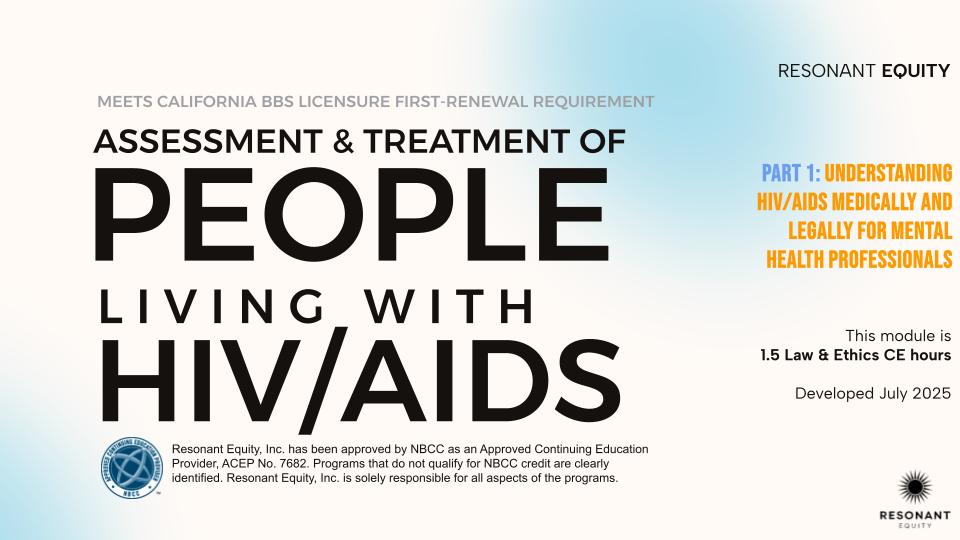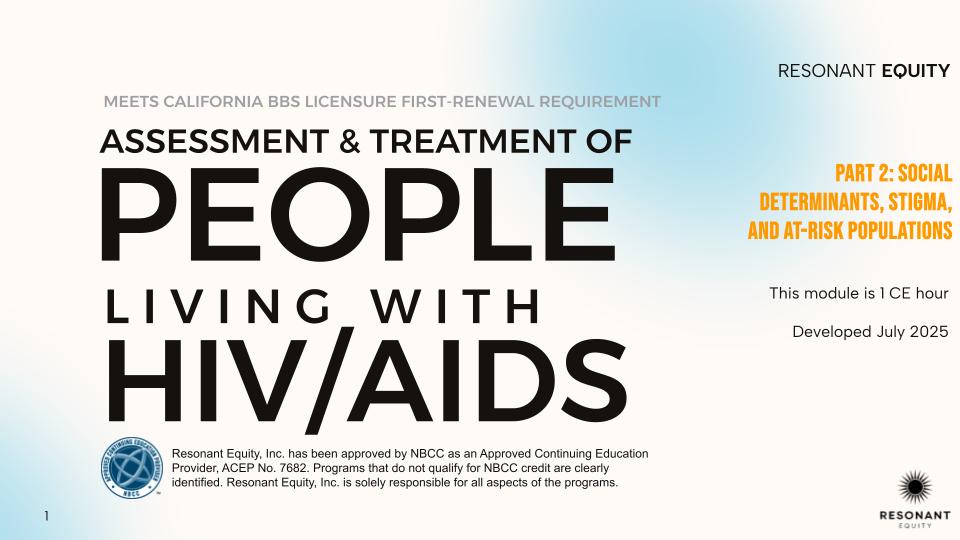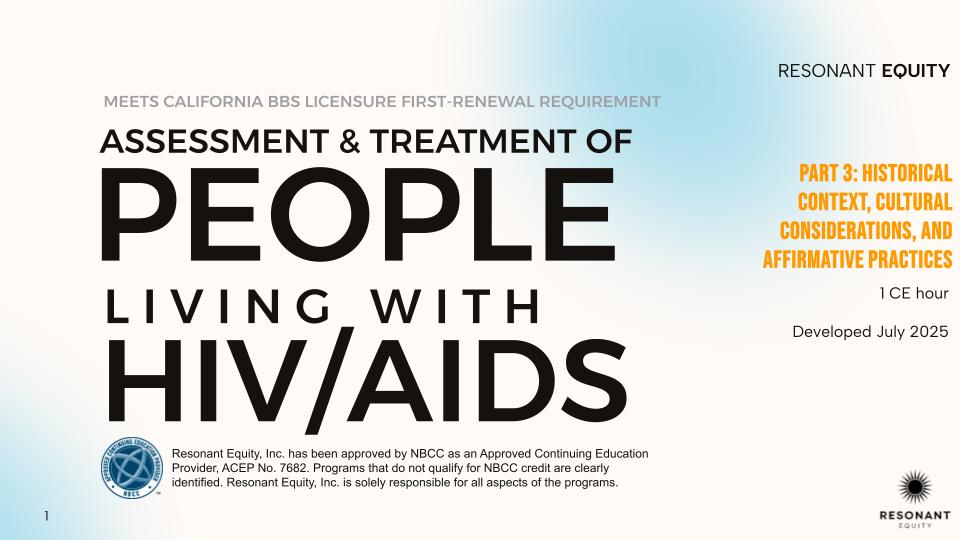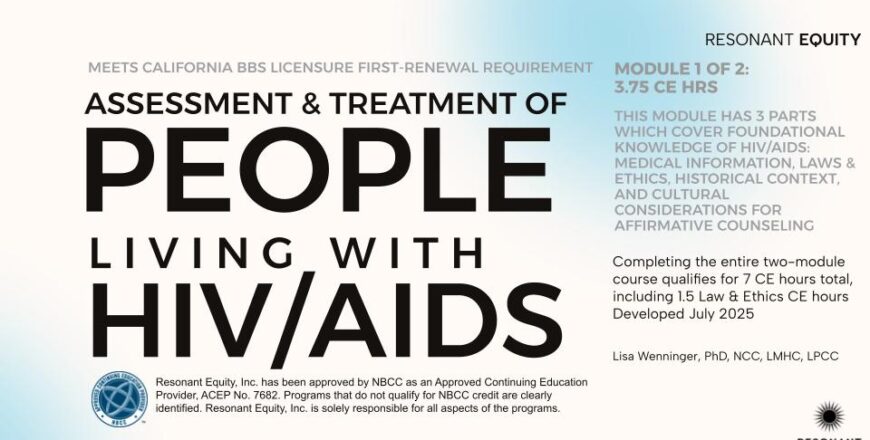Mental Health Counseling Assessment and Treatment of People Living with HIV/AIDS: Module 1
Courses in this bundle:




This is Module 1 of 2. You’ll need to complete both modules to earn the 7 CE hours total that are required by the California BBS. This module has three parts to it, and when you finish, you will earn 3.75 CE hours (3.25 CE hours available in Module 2).
AIDS has always been a stigmatized disease in the U.S. Many mental health counseling master’s programs do not include much at all in their curriculum about HIV and AIDS. However, the California Board of Behavioral Sciences requires that all licensed mental health clinicians complete at least 7 hours of education on this important topic by the time of the clinician’s first license renewal. This course fulfills that California BBS requirement under Business and Professions Code §32, which mandates training in the characteristics and methods of assessment and treatment of persons living with HIV and AIDS. Designed for LMFTs, LCSWs, and LPCCs, this 7-module 7-CE hour program explores the psychological, cultural, and systemic impacts of HIV on individuals and communities. Through historical context, clinical frameworks, and ethical guidance, you will learn how HIV intersects with stigma, trauma, and identity, impacting mental health in specific ways for people living with HIV (PLWH) and those who may be at greater risk for contracting it. We will focus on culturally responsive, affirming, and trauma-informed approaches to counseling clients living with HIV and AIDS, including those newly diagnosed, long-term survivors, and individuals from historically marginalized communities.
This course is specifically tailored to mental health professionals, and it includes recorded lectures with slides, plus a large number of videos of people living with HIV, to hear their voices and understand the lived experience of those most impacted. We cover common co-occurring concerns such as depression, anxiety, and substance use, and explore how social determinants of health, especially socioeconomic factors like incarceration and housing insecurity, and bias and discrimination, including racism, homophobia, and medical traumas, shape client experiences. You’ll be invited to review real-world scenarios, examine your own implicit bias, and engage in reflection exercises while building clinical skills and learning tailored interventions to provide nonjudgmental, client-centered care. Additional topics include AIDS Survivor Syndrome, grief and loss, and peer-based sources of support.